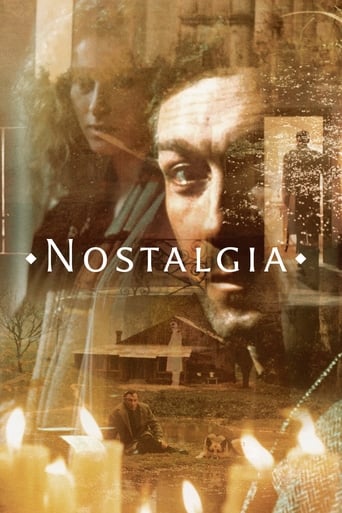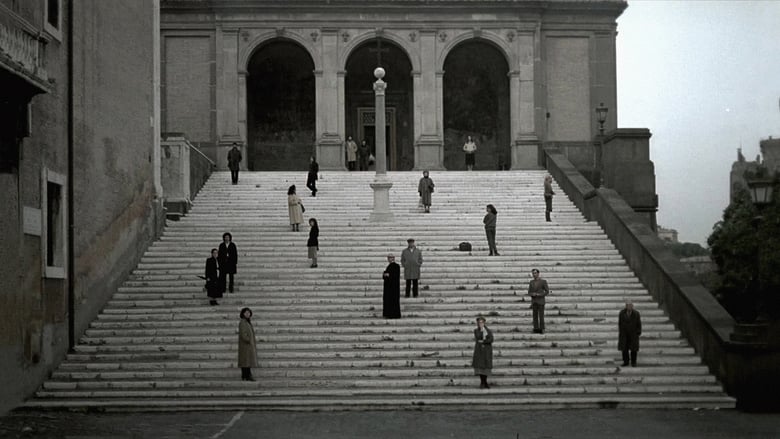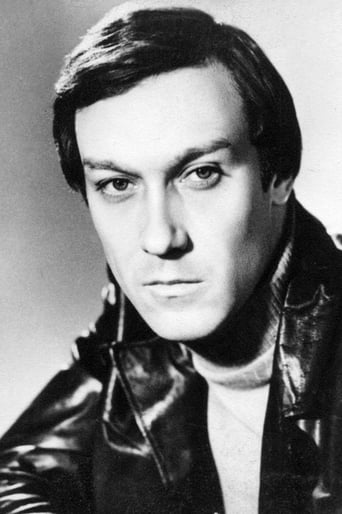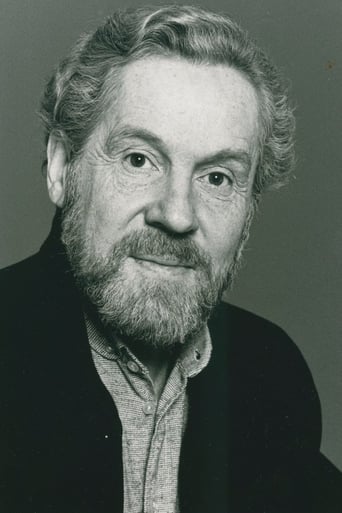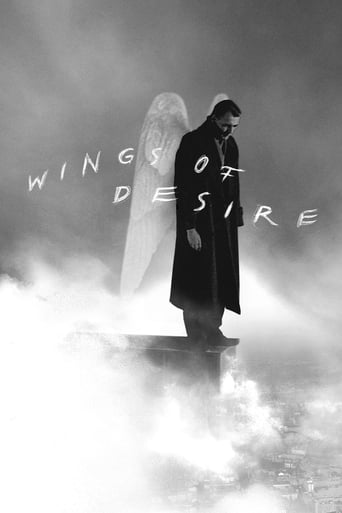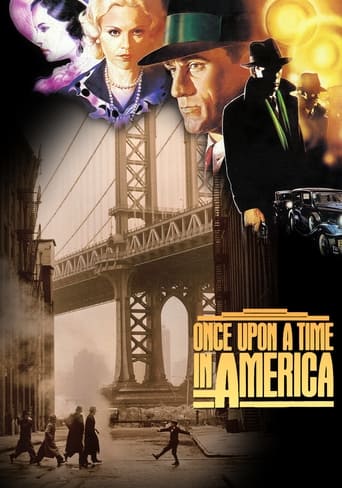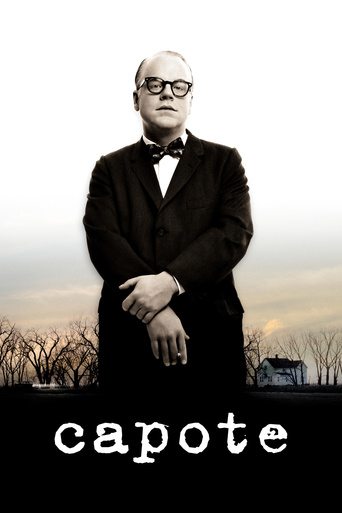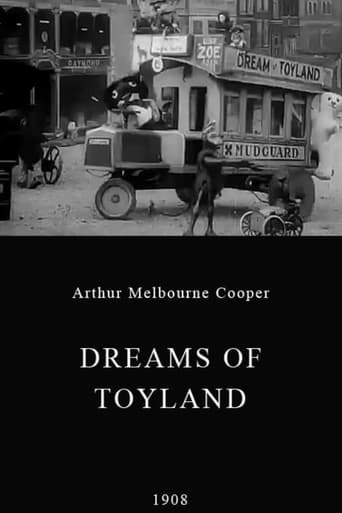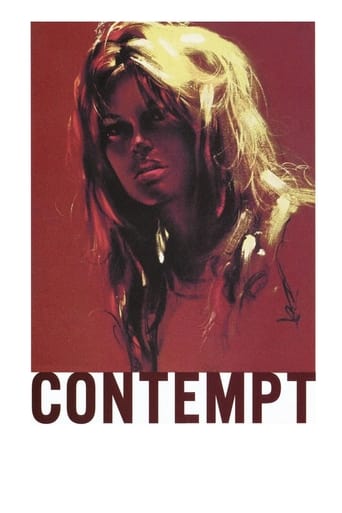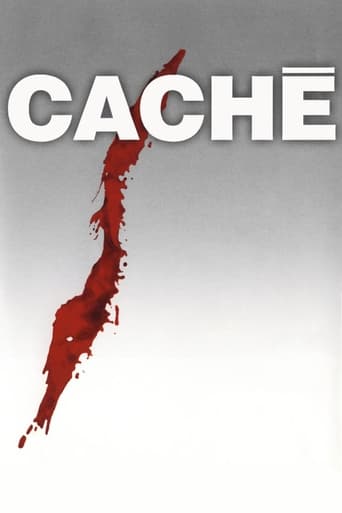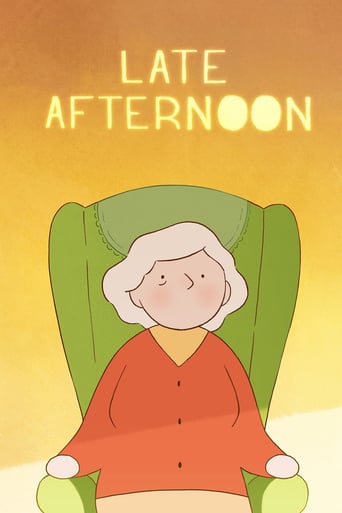Nostalgia (1983)
A Russian poet and his interpreter travel to Italy to research the life of an 18th-century composer.
Watch Trailer
Cast


Similar titles
Reviews
Purely Joyful Movie!
One of the most extraordinary films you will see this year. Take that as you want.
A terrific literary drama and character piece that shows how the process of creating art can be seen differently by those doing it and those looking at it from the outside.
Excellent and certainly provocative... If nothing else, the film is a real conversation starter.
I like to compare Nostalghia to Stalker. They're similar to me in many ways. One of the unique strengths of this film is the Italian style to the cinematography and to see Tarkovsky give us something new away from his home in Russia. In the film itself he criticizes the artists ability to create authentically, outside of his own country or that's how I think he meant it. A lesser writer would've struggled in this regard, but Tarkovsky's vision in Italy is just as strong as it was in Russia.Nostalghia is more stylish visually, but I feel that the story and characters were stronger in Stalker. Nostalghia isn't weak at all, but it just doesn't reach the highs as we had in Stalker. One of the problems is the writers relationship with his girlfriend. Tarkovsky created a character that isn't perfect, but I think the audience might dislike our protagonist for some of his weaknesses early on. He later grows and develops but I don't think his change is very clear on a social level. He grows maybe spiritually, but what is it about the madman that inspires him exactly? I'm not totally sure about that either. And what happens in the end? I'm not going to raise the possibilities here but Tarkovsky takes a risk here that other great directors didn't. That's something to both applaud and be concerned about. I personally didn't have a problem with that, but I think others won't feel as connected to the characters and story as I was.
No, you can't. Tarkovsky is the ultimate art filmmaker and he demonstrates it again in this great picture, I would say, his best picture that he made outside of Russia. The other one (The Sacrifice) is also great, but I would prefer this over The Sacrifice, which is a picture that sacrifices a bit too much of Tarkovsky trademarks such as being a picture driven by images, instead dialogue takes center stage. Here, by contrast, we have a picture that is driven mostly by images, hence, being a highly original and powerful exercise of film-making.The film also has a deeper plot than The Mirror, though it is still not a plot driven film like Solaris. It shows the influence of The Mirror on Tarkovsky films: before he made The Mirror, his films were still slightly more conventional but after they became much more avant garde and audacious.This film is essential for film buffs and I might say it is perhaps one of the top 100 greatest films ever made.
Tarkovsky being pretentious is like Lucas using CGI; but he is undoubtedly a genius - because of his other films. In Andrei Rublev, you can see his sheer hard work: events unfold before your eyes - the balloon, the clown, the orgy, the raid, the awesome bell - all these scenes are masterpieces. Solaris has the mood and sets done just right, which causes an overwhelming uneasiness in the viewer.Nostalghia has nothing of the sort. I actually didn't mind the last couple of scenes - the immolation and the candle. It was the rest of the movie that was - how shall I put it - duller. Tarkovsky is just being lazy here. Not only has he given up any attempt at hard work, he repeats and re-repeats himself - from his own other movies and then within this movie itself.The scenes of things under water - done in Andrei Rublev. The family life scenes (including ending) - same as Solaris. Rain inside house - cf snow inside church in Rublev. Philosophical conversations about the same old topics - done better in Rublev. Fog - done in Solaris. Unblinking closeup of painting - you get the idea. Even the immolation reminds of the cow being set on fire in Rublev. There is little that's original here - the baths, the candle scene. That's about it.If this is your first Tarkovsky you might like it better. But this is a pretentious, unoriginal, tired work with few redeeming qualities.
It's sometimes true that the most demanding movies can yield the most lasting rewards, and the penultimate film by the late Andrei Tarkovsky certainly puts the theory to the test. This was the first feature he directed outside the Soviet Union, and its protagonist is (like Tarkovsky himself was) a Russian artist exiled in Italy. But don't expect anything remotely plot-driven; like other Tarkovsky films it's a dense, challenging exploration of faith, madness and memory: beautiful, enigmatic, intellectual, and extremely slow moving. Many of the sequences are a labor to sit through, but the final shot, in which the director transplants a Russian cottage (complete with landscape) inside the massive walls of an ruined Gothic cathedral, is by itself compelling enough to erase the aftertaste of even the most tedious passages.

